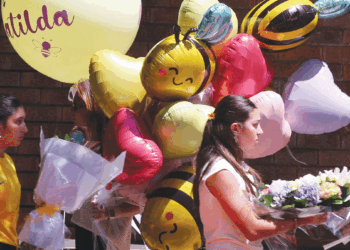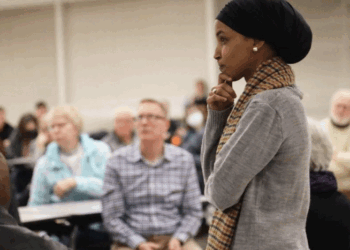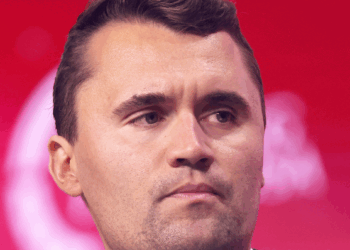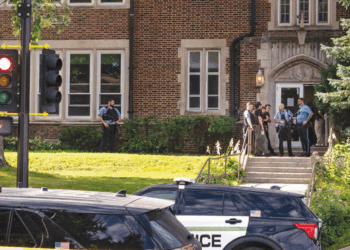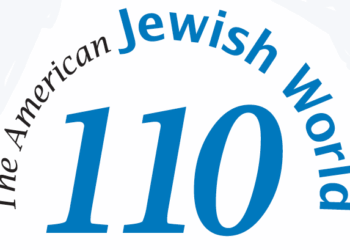There was a remarkable moment on Sunday afternoon, during the Immigrant Rights Freedom Seder at Mount Zion Temple. The Jewish Community Action-sponsored event, in its seventh year, drew about 200 participants from diverse backgrounds.
After Rabbis Amy Eilberg and Adam Stock Spilker led the kindling of lights and explained the order of the seder, blessed wine, ritually washed hands, dipped parsley in salt water, we came to Yachatz, breaking the middle matzo. Rabbi Eilberg explained that in breaking the matzo, we remind ourselves that as long as anyone is suffering in our world, none of us can be whole. The division of the matzo also represents “the forced dvision of communities and families due to disappearances, detentions and deportations of immigrants that are carried out in the name of national security.”
The group read together from the Haggada: “This is the bread of poverty, the bread of affliction. Let all who are hungry come and eat!”
Then (this was the moment), Eilberg invited participants to speak the latter line — Let all who are hungry come and eat! — in their native languages. There were about a dozen different languages spoken, including Spanish, Lakota, French, Polish, Hutu, Hungarian, Greek and Hebrew. It was a vivid demonstration of what a diverse group was gathered in the room.
And the radical message of the Haggada spoke directly to the seder participants. In the year since last Passover, we have learned a great deal of the plight of Latino immigrants in the town of Postville, Iowa. The Jewish World has published numerous reports about the massive immigration raid last May at the Agriprocessors kosher slaughterhouse, and the subsequent deportation of hundreds of immigrant workers back to Mexico and Guatemala. Paul Rael, who is the lay minister at St. Bridget Catholic Church in Postville, works with the Spanish-speaking community left in Postville. After the seder on Sunday, Rael told me that 24 families, mainly mothers and their children, were left in the sole care of his church after the immigration raid. These detained men and women must wear electronic monitoring bracelets on their ankles, as they wait to testify at federal criminal trials for the indicted Agriprocessors owners and managers.
Father Paul Ouderkirk, the spiritual leader of St. Bridget, also attended the seder. He mentioned that numerous families stayed in his church for “six solid days” after the raid. Children were afraid to attend school for fear that they too would be snatched by federal immigration officers. “The community’s trauma was evident in all the students,” commented Ouderkirk, who expressed the hope that “these will not be the children of a new exodus, but that they will be able to put down roots” in this country.
Another group represented at the seder, Liberians, recently got some good news from Washington. Refugees from a civil war in their homeland, the 3,600 Liberians living in the U.S. were recently spared from imminent deportation by an executive order signed last week by President Barack Obama. So the postcards distributed at the seder tables, which had a message urging the president to allow Liberians to stay here, were repurposed as cards of thanks — with the message that Liberians should be allowed to stay permanently in America.
As our Page 1 story this week explains, the Passover message of freedom speaks to people around the world. As the Haggada we read at Mount Zion points out: “Our story joins the stories of all people who have ever been in bondage, and our story compels us to work toward freedom for those who remain physically, spiritually or economically enslaved.”
We tend to forget that we are relative newcomers to this land; most Jewish World readers are of their families’ first and second generations born in America. Each of us can make a contribution to helping immigrant families and expanding freedom in our world.
— Mordecai Specktor /Â editor@ajwnews.com
(American Jewish World, 3.27.09)










